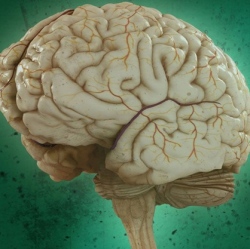
A team of researchers from Virginia Tech and Wake Forest University School of Biomedical Engineering and Sciences have developed a new technique for using pulsed electric energy to open the blood-brain-barrier (BBB) for treating brain cancer and neurological disorders.
Their Vascular Enabled Integrated Nanosecond pulse (VEIN pulse) procedure consists of inserting minimally invasive needle electrodes into the diseased tissue and applying multiple bursts of 850-nanosecond pulsed electric energy with alternating polarity. The researchers think the bursts disrupt tight junction proteins responsible for maintaining the integrity of the BBB, but without causing damage to the surrounding tissue.
For the treatment of brain cancer, “VEIN pulses could be applied at the same time as biopsy or through the same track as the biopsy probe in order to mitigate damage to the healthy tissue by limiting the number of needle insertions,” says Rafael V. Davalos, Ph.D, director of the Bioelectromechanical Systems Laboratory at Virginia Tech. The BBB is a network of tight junctions that normally acts to protect the brain from foreign substances by preventing them from leaking from blood vessels into neural structures. But that also limits the effectiveness of drugs to treat brain disease. Temporarily opening the BBB is a way to ensure that drugs can still be effective.
